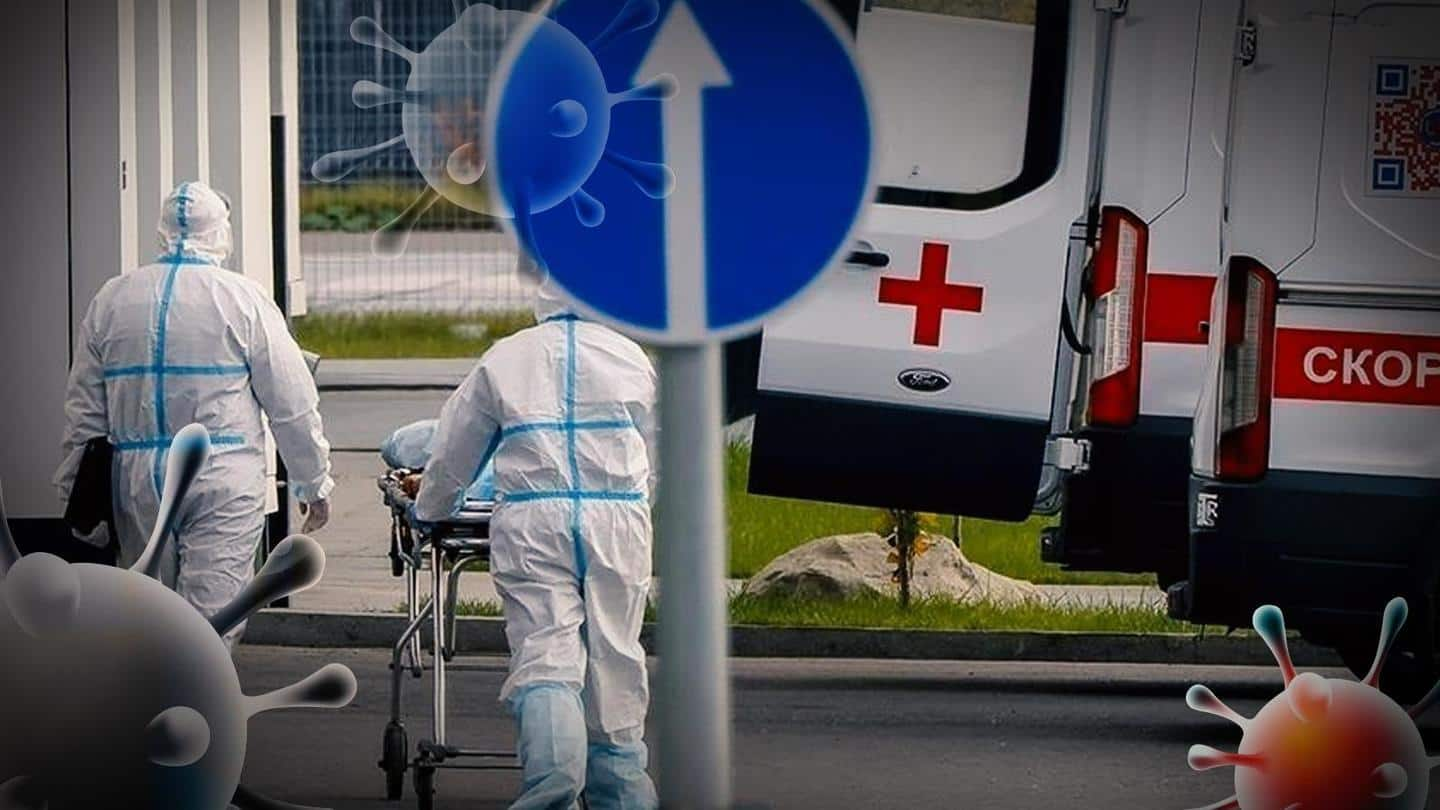
More contagious Delta subvariant in Russia; what does it mean?
What's the story
A new "more contagious" subvariant of the Delta coronavirus strain has been detected in Russia, the state consumer watchdog's senior researcher said on Thursday.
Researcher Kamil Khafizov said the subvariant (AY.4.2) might be 10% more infectious than the original Delta strain.
Notably, the subvariant has been detected in "isolated cases" and researchers fear it may spread across the country.
Context
Why does it matter?
Russia has been witnessing a surge in COVID-19 cases since September.
Although no link has been established between the surge and the emergence of a new Delta subvariant, researchers say the new strain is "more contagious."
Notably, the original Delta strain has been associated with an upsurge in infections worldwide.
However, researchers conjecture that the coronavirus is unlikely to make another "revolutionary" evolutionary jump.
Details
Subvariant 'slightly more contagious'
The Delta variant is currently the dominant strain in Russia and has driven cases and deaths to new heights.
There are apprehensions that the AY.4.2 subvariant may lead to more infections.
However, Khafizov rejected this, saying the subvariant is "potentially only a slightly more contagious strain."
He also said that it has spread "slowly" since being detected in July.
Quote
Vaccines 'effective enough' against subvariant
Khafizov further said, "The vaccines are effective enough against this version of the virus, which is not so different as to dramatically change the ability to bind to antibodies." Thus far, just over 30% of Russians have been fully vaccinated.
Expert
Revolutionary jump in evolution unlikely
Russian immunologist Nikolay Kryuchkov said Delta and its subvariants would remain dominant in the country.
However, he conjectured that a "revolutionary jump" in its evolution was unlikely.
"Because the coronavirus, like any organism, has an evolutionary limit, and the evolutionary jump has already happened."
Delta would adapt to vaccines, especially where vaccination rates are around 50% or less, he said.
Russia
Infections hit record highs
COVID-19 cases have been rising in Russia since mid-September. Daily cases have remained over 30,000 the past two weeks.
The surge has been attributed to vaccine hesitancy.
On Thursday, Moscow's mayor called for a "short-term lockdown," the strictest measures since last June.
President Vladimir Putin also announced a week-long workplace shutdown between October 30-November 7.
Other news
AY.4.2 subvariant reaches UK
The AY.4.2 subvariant is also contributing a significant number of COVID-19 cases in the UK.
It accounts for roughly 6% of all sequences generated in England in the week beginning September 27, a UK Health Security Agency report said.
The government has said that it is monitoring the new strain.
British Health Minister Sajid Javid argued the subvariant posed no greater threat than Delta.